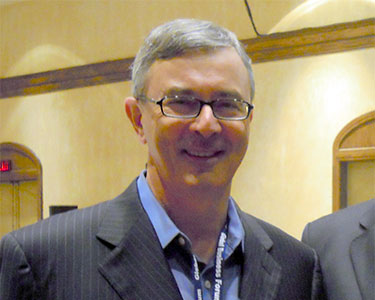Paul Cellucci remembered for blunt talk during tough times
Former Massachusetts governor and former U.S. Ambassador to Canada Paul Cellucci died on Saturday from complications of ALS, also known as Lou Gehrig’s disease.
Cellucci is being lauded as a down-to-earth, forthright speaker. (The word “blunt” is often invoked.) He’s also being recalled as a politician widely respected by both parties.
Across three decades of public office he never lost an election. An in-depth summary of Cellucci’s personality and political career can be read in this article by the Boston Globe’s Belle English.
“He was a completely different type of governor in terms of his background,” said Rob Gray, who served as a chief political adviser to Mr. Cellucci.
“Growing up outside the Boston-Route 128 bubble and continuing to hang out with average people on a daily basis really shaped his views of the issues,” said Gray, president of Gray Media Group. “Paul was staunchly antitax and very frugal when it came to the budget, but he knew that certain types of government spending helped average people. He wasn’t just symbolically a man of the people; that’s what he really was.”
Cellucci was a long-time supporter of George H.W. Bush and George W. Bush. When the younger Bush became president in 2001, he quickly appointed Cellucci as U.S. Ambassador to Canada, a post Cellucci held until 2005.
Here’s how that appointment was characterized by the Ottawa Citizen’s Zev Singer:
Cellucci typified the recent shift in diplomacy between the two countries from the polite, non-partisan career foreign service officer to the more political and outspoken appointee not afraid to take a message from the Oval Office directly to the public.
Cellucci was the top U.S. diplomat in Ottawa during the Sept 11 attacks when planes were grounded and many were diverted to Canada. The co-operation and hospitality generated by that effort are still remembered warmly in both nations.
But the subsequent debate about going to war in Iraq produced some sense of betrayal from the U.S. perspective, after Prime Minister Jean Chretién decided Canada would opt out. That frustration was described in Cellucci’s 2005 book: Unquiet Diplomacy. (Here is a review and here is an excerpt.)
Cellucci knew he ruffled feathers by lecturing Canadians in bully-pulpit style. But he had few regrets.
“…at all times I felt confident that most people would realize that I had paid Canadians one of the best compliments that you can pay a friend. I told them the truth, as I saw it.”
Having moved to Ontario in 1999, I can attest that Cellucci faced a challenge that might be described as guilt by association: George Bush was profoundly unpopular in Canada.
The argument remains: do nations have to up their military game in response to heightened dangers in the world arena? If so, how and where should that be done?
But in Canada, during the early 2000’s, that argument was often rejected outright because of distaste for the messenger’s boss.
Post 9/11 Canada did strengthen its military capacity, as Cellucci and others advocated – a shift hailed by some, decried by others.
Opinions on the lessons of 9/11 are many and varied. But Cellucci was the man in the middle during a fractious time in U.S./Canada relations.
Tags: canada, Paul Cellucci, politics, United States, Us-Canada relations







